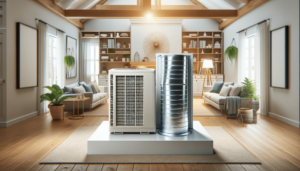

HVAC Services
Get Professional Repairs From The Area's Trusted HVAC Technicians. Ask About Our Services! We Offer Professional Heating & Cooling System Repairs And Guarantee Long-Lasting Results.
Got Question? Call us: (850) 678-2665Financing
Signs you need to call a professional HVAC service
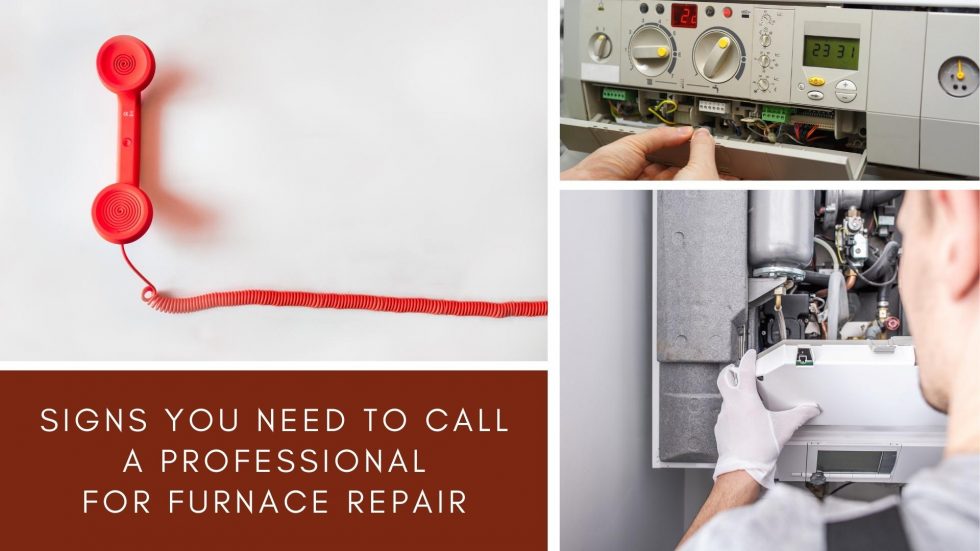
If you ever find yourself trying to decipher strange noises coming from your HVAC system or feeling like your home just isn’t cooling or heating as it should, it may be time to call a professional HVAC service for help. From unusual smells to inconsistent temperatures, these signs are your cue to reach out to an expert who can diagnose and resolve any issues with your heating, ventilation, and air conditioning system. In Niceville, FL and the surrounding area, Tempacure Heating and Air Conditioning is the go-to company for all your HVAC service, repair, and maintenance needs. With their expertise, you can trust that your HVAC system will be in good hands, promoting comfort and efficiency in your home.
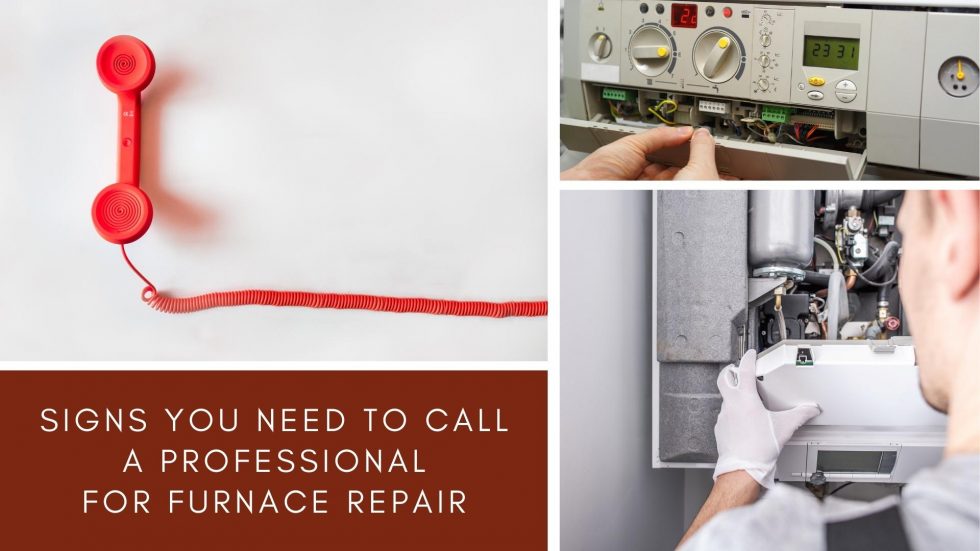
This image is property of www.pioneersheatingandair.com.
Common HVAC Issues
Strange Noises
One common issue that you may encounter with your HVAC system is strange noises. If you start hearing rattling, banging, or squealing sounds coming from your unit, it could indicate a problem. These noises could be a result of loose or damaged parts, such as fan blades or belts. Ignoring these unusual sounds can cause further damage to your system, so it’s best to address them promptly.
Uneven Heating or Cooling
Another problem that you may face with your HVAC system is uneven heating or cooling. If certain areas of your home are too hot or too cold while others remain comfortable, it could be a sign of an issue. This could be due to a clogged air filter, improperly sized equipment, malfunctioning dampers, or leaks in the ductwork. Addressing this problem is essential for maintaining a comfortable and consistent indoor temperature.
Weak Airflow
Weak airflow from your HVAC system can be frustrating, as it hampers the ability to effectively heat or cool your home. This issue may be caused by a blocked air filter, clogged ducts, or a malfunctioning blower fan. It’s crucial to address this problem to ensure proper airflow and maintain a comfortable environment.
Frequent Cycling
If your HVAC system constantly turns on and off, it may indicate a frequent cycling issue. This can be caused by a variety of factors, including thermostat issues, improper equipment sizing, or a malfunctioning compressor. Frequent cycling not only puts unnecessary stress on your system but also increases energy consumption. To prevent further damage and save on energy bills, it is important to have this issue looked at by a professional.
High Energy Bills
Experiencing high energy bills can be a sign of an underlying HVAC issue. If your energy bills have significantly increased without a change in usage, it’s worth investigating the cause. Common culprits can include leaks in the ductwork, improper insulation, or an inefficient system. By addressing these issues, you can enjoy better energy efficiency and lower utility costs.
HVAC Troubleshooting Tips
Check the Thermostat
Before calling a professional, it’s always a good idea to start with some basic troubleshooting steps. Begin by checking your thermostat to ensure it is set correctly. Make sure it is on the appropriate setting (heating or cooling) and that the desired temperature is properly adjusted. Sometimes, simple user errors can cause HVAC issues.
Inspect the Air Filters
Next, take a look at the air filters. A clogged or dirty air filter can restrict airflow and hinder the performance of your HVAC system. If the filters appear dirty, it’s time to replace them. Regularly changing your air filters not only improves HVAC efficiency but also helps maintain clean indoor air quality.
Clear the Outdoor Unit
If you have an outdoor HVAC unit, it’s essential to keep it clear of any debris, leaves, or obstructions. The outdoor unit needs sufficient airflow to function properly. Check for any blockages and clear them away to ensure optimal system performance.
Check for Leaks in Ductwork
Inspecting the ductwork for any leaks is another troubleshooting tip. Leaky ducts can lead to inefficiencies and decreased performance. Look for visible signs of ductwork damage, such as gaps or loose connections. Sealing these leaks with duct tape or mastic can improve system performance and energy efficiency.
Signs of HVAC System Failure
Hot or Cold Spots
If you experience hot or cold spots in different areas of your home, it could be a sign of HVAC system failure. These temperature inconsistencies can indicate issues with the distribution of heated or cooled air. Factors such as ductwork problems or equipment malfunctions may be to blame. It’s important to address these issues to maintain a comfortable indoor environment.
Inconsistent Temperatures
Inconsistent temperatures throughout your home can be a red flag. If you find yourself constantly adjusting your thermostat to achieve a consistent temperature, it may indicate an underlying issue. Inefficient equipment, incorrect sizing, or blocked air vents can all contribute to temperature inconsistencies.
Constant On and Off
A system that frequently turns on and off, also known as short cycling, is another sign of HVAC system failure. This can be caused by various factors, including improperly sized equipment, thermostat issues, or refrigerant leaks. Short cycling not only leads to decreased comfort but can also result in increased wear and tear on your system.
Lack of Airflow
A lack of airflow from vents is another warning sign of HVAC system failure. If you notice weak or no airflow, it could indicate a problem with the blower fan, clogged air filters, or blocked ductwork. Insufficient airflow not only affects the comfort of your home but can also strain your system and contribute to higher energy bills.
When DIY Fixes Are Not Enough
Complex Repairs
While many HVAC issues can be resolved with DIY troubleshooting, some repairs may require the expertise of a professional. Complex repairs, such as replacing a faulty compressor or repairing a refrigerant leak, are best left to trained HVAC technicians. Attempting these repairs without the necessary knowledge and tools can result in further damage to your system.
Electrical Issues
Dealing with electrical components can be dangerous if you don’t have the proper training and experience. If you suspect electrical issues with your HVAC system, such as faulty wiring or a malfunctioning control panel, it’s crucial to call a professional. They have the expertise to safely diagnose and fix electrical problems.
Refrigerant Leaks
Refrigerant leaks can be harmful to both your HVAC system and the environment. Working with refrigerants requires specialized knowledge and equipment. If you detect a refrigerant leak or suspect an issue with the refrigerant system, it’s essential to contact a professional HVAC service to repair and recharge the system properly.
Ductwork Problems
Fixing ductwork issues can be a challenging task that requires specialized tools and skills. If your ductwork has leaks, improper insulation, or is in need of replacement, it’s best to hire a professional HVAC service. They can assess the condition of your ductwork, make any necessary repairs or replacements, and ensure optimal performance.
Replacing Old HVAC System
When it’s time to replace your old HVAC system, it’s important to have a professional handle the installation. Proper sizing, installation, and configuration are crucial for optimal performance and energy efficiency. A professional HVAC service can guide you in choosing the right system for your home and ensure a seamless installation.
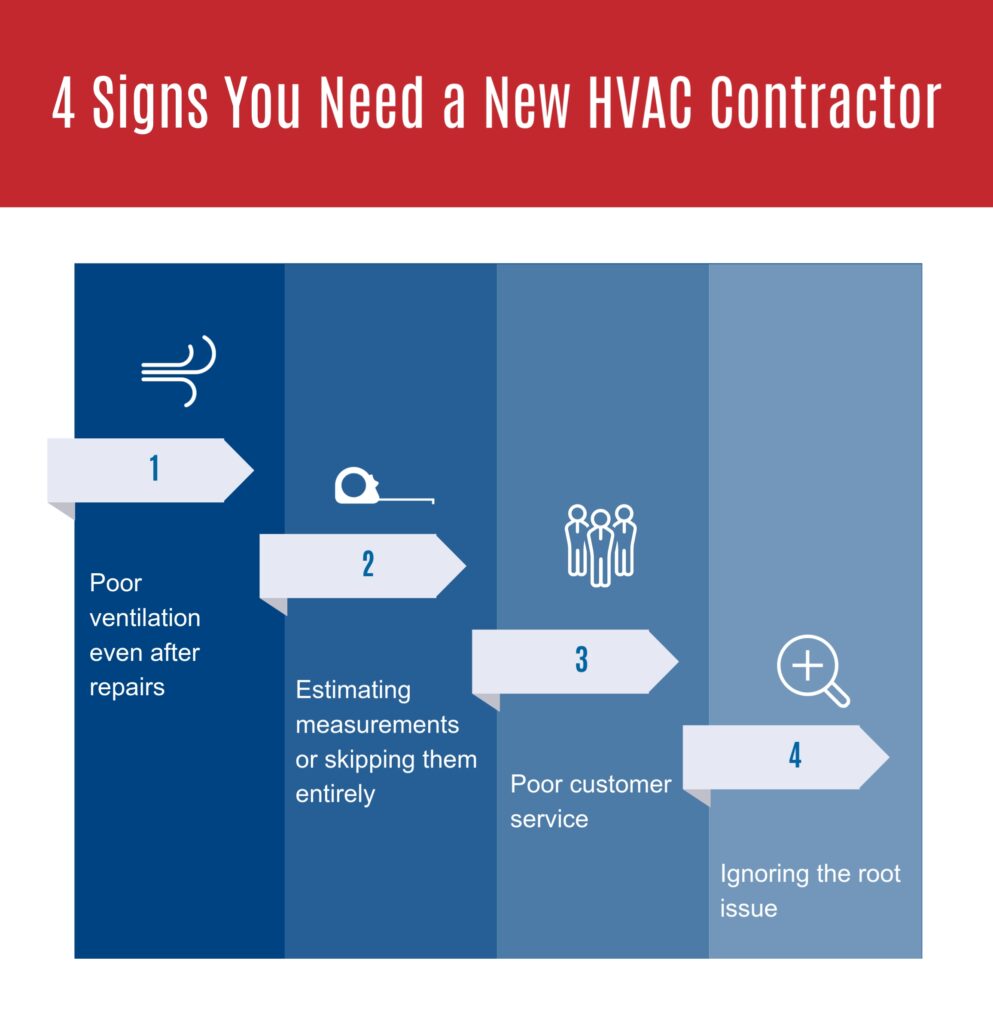
This image is property of thetrainingcenterofairconditioningandheating.com.
The Importance of Regular Maintenance
Increased System Lifespan
Regular maintenance plays a vital role in extending the lifespan of your HVAC system. Just like any other mechanical equipment, your HVAC system requires routine care to ensure optimal performance and longevity. Regular inspections, cleaning, and tune-ups help identify potential issues before they become major problems, ultimately prolonging the life of your system.
Improved Energy Efficiency
A well-maintained HVAC system operates more efficiently, helping you save on energy bills. Regular maintenance tasks, such as cleaning filters, calibrating thermostats, and lubricating moving parts, contribute to improved energy efficiency. By ensuring your system is running at peak performance, you can enjoy lower energy costs while reducing your carbon footprint.
Better Indoor Air Quality
Regular HVAC maintenance also helps improve indoor air quality. Over time, dust, dirt, and other pollutants can accumulate in your system, negatively impacting the air you breathe. By cleaning or replacing filters, removing debris from ducts, and ensuring proper airflow, you can maintain cleaner and healthier indoor air.
Finding the Right HVAC Professional
Research and Read Reviews
When searching for an HVAC professional, take the time to research and read reviews from reliable sources. Look for companies with positive customer feedback and a good reputation in the industry. Online review platforms and testimonials can give you insights into their reliability, professionalism, and quality of service.
Check for Proper Certification
Make sure the HVAC professional you choose is properly certified and licensed. Proper certification ensures that the technicians have undergone the necessary training and possess the knowledge and skills to handle HVAC systems safely and efficiently. Ask for proof of certification before hiring a professional.
Ask for References
Don’t hesitate to ask for references from previous customers. Talking to past clients can give you a better understanding of their experience with the HVAC service provider. Ask about the quality of work, professionalism, and timeliness of the service. A reputable company will have no problem providing references for you to contact.
Compare Quotes
Before making a final decision, it’s a good idea to obtain quotes from multiple HVAC service providers. Comparing quotes allows you to evaluate the scope of work and associated costs. However, keep in mind that the cheapest option is not always the best. Take into account the reputation, expertise, and reliability of the professionals when making your decision.
Evaluate Customer Service
Excellent customer service is crucial when choosing an HVAC professional. Pay attention to how the company handles your inquiries, addresses any concerns, and communicates with you throughout the process. Prompt responses, friendly staff, and a commitment to customer satisfaction are signs of a reputable HVAC service provider.
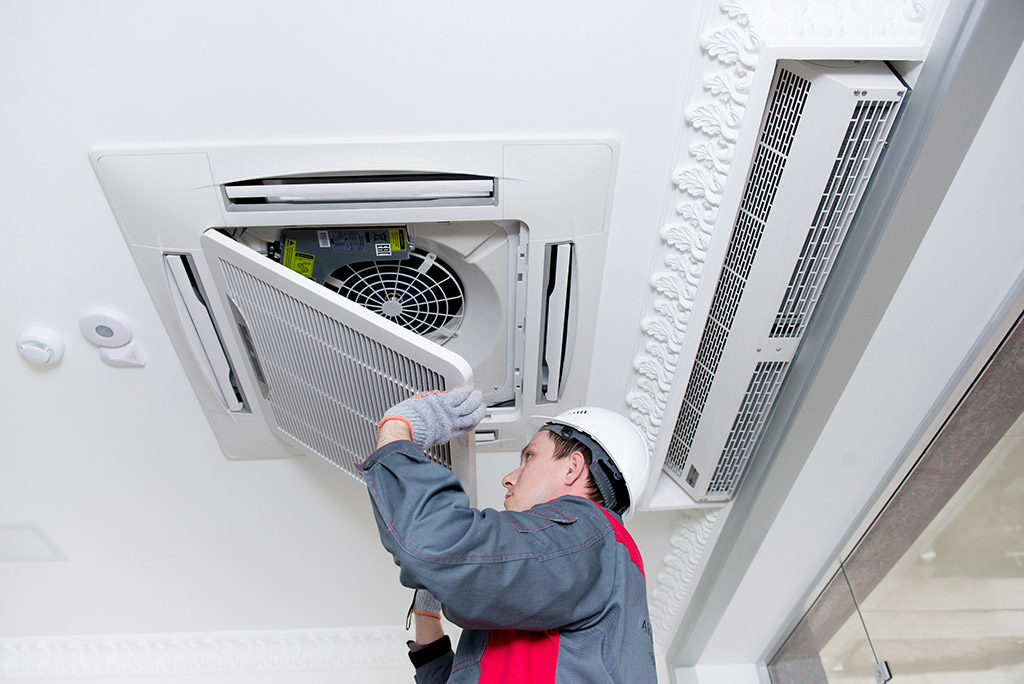
This image is property of www.onehourairftworth.com.
Benefits of Hiring a Professional HVAC Service
Experience and Expertise
One of the main benefits of hiring a professional HVAC service is the experience and expertise they bring to the table. HVAC technicians undergo extensive training and have in-depth knowledge of different types of systems. They are familiar with industry best practices and can efficiently diagnose and resolve issues. Their expertise ensures optimal system performance and minimizes the risk of further damage.
Safety and Insurance
HVAC systems involve electrical components and potentially hazardous materials. Hiring a professional HVAC service ensures the safety of both you and your home. Certified technicians have the necessary skills to handle electrical work and refrigerants safely. Additionally, reputable HVAC companies carry liability insurance, protecting you from potential damages or accidents that may occur during the repair or maintenance process.
Time and Cost Savings
While it may be enticing to attempt DIY repairs to save some money, it may actually end up costing you more in the long run. Professionals can quickly and accurately identify the root cause of the problem, saving you time and frustration. They have the right tools and equipment for the job, reducing the risk of costly mistakes or additional repairs. Additionally, regular maintenance performed by professionals helps prevent major issues and costly breakdowns.
The Risks of DIY HVAC Repairs
Safety Hazards
DIY HVAC repairs can pose significant safety hazards, especially if you don’t have the proper knowledge and training. Dealing with electrical components, refrigerants, and high voltages can result in injuries or damage to your property. It’s essential to prioritize your safety and leave complex HVAC repairs to professionals who have the necessary expertise and equipment.
Voiding Warranty
Attempting DIY repairs on your HVAC system could potentially void your warranty. Manufacturers typically require professional installation, repairs, and maintenance to keep the warranty valid. If you attempt repairs yourself or hire an unqualified individual, it may jeopardize your warranty coverage. It’s important to read and understand your warranty terms to avoid any unnecessary expenses.
Ineffectiveness
DIY repairs may seem cost-effective, but they often end up being less effective and efficient than professional solutions. Lack of knowledge, incorrect diagnosis, or inadequate tools can result in temporary fixes or even exacerbate the problem. A professional HVAC service ensures that repairs are done correctly the first time, saving you from the hassle of repeated attempts and further complications.
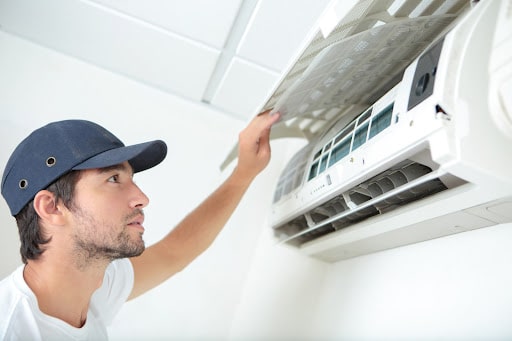
This image is property of www.schneidermechanical.com.
Conclusion
Your HVAC system plays a crucial role in maintaining a comfortable and healthy indoor environment. Understanding common HVAC issues, troubleshooting tips, signs of system failure, and the importance of regular maintenance can help you make informed decisions and ensure the longevity and efficiency of your system. While some issues can be resolved with DIY efforts, it’s important to recognize when it’s time to call a professional HVAC service. Hiring a professional offers a range of benefits, including expertise, safety, and cost savings. By prioritizing the care of your HVAC system, you can enjoy reliable performance, improved energy efficiency, and enhanced indoor air quality for years to come.


